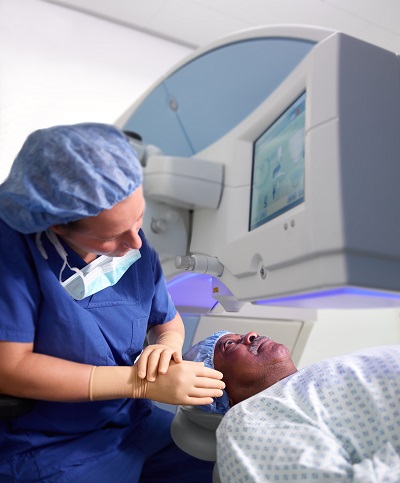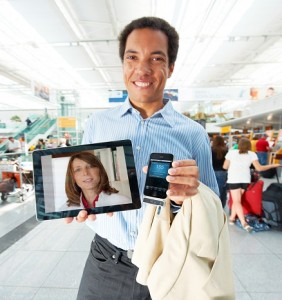Inclusive Innovation in Health Care
Why Does the Interdisciplinary Summer School Focus on
“Inclusive Innovation in Health Care”?
The world’s health care systems still face major challenges in the context of adequate utilization of health care and access to services, even in developed countries. Health outcomes vary across populations. Particular groups of people are less likley to receive routine medical procedures  or high quality care services and have higher rates of mortality than others. Due to specific barriers, not all individuals are able to conduct a healthy lifestyle or receive an optimal disease treatment. Those factors can be related to gender, age, socio-economic status, area of residency (e.g., rural vs. urban), health literacy, and even religion.
or high quality care services and have higher rates of mortality than others. Due to specific barriers, not all individuals are able to conduct a healthy lifestyle or receive an optimal disease treatment. Those factors can be related to gender, age, socio-economic status, area of residency (e.g., rural vs. urban), health literacy, and even religion.
With a specific focus on those who are disenfranchised from the tremendous benefit of medical progress, this Interdisciplinary Summer School engages in the discussion of the potential of inclusive innovation as a tool to overcome those barriers. Inclusive innovation is any process, product, or service that reaches the goal of reducing disparities or inequalities and leads to a wider outreach of medical progress.
 Approaches to overcome the challenges for inclusive innovations are manifold. Starting at the health care system level, problems have to be analyzed. The health care system builds the framework or the eco-system for inclusiveness or exclusiveness. In addition, recent research revealed that medical innovations themselves might actually cause those disparities. Since medical technologies are an essential driver of health care costs, health care providers, and suppliers have started to focus on affordable health care equipment.
Approaches to overcome the challenges for inclusive innovations are manifold. Starting at the health care system level, problems have to be analyzed. The health care system builds the framework or the eco-system for inclusiveness or exclusiveness. In addition, recent research revealed that medical innovations themselves might actually cause those disparities. Since medical technologies are an essential driver of health care costs, health care providers, and suppliers have started to focus on affordable health care equipment.
The access to medical innovation and services is addressed by initiatives that foster a shift of the point of care towards the patient. Through the use of new technologies and care models, services which were regularly provided  by hospitals are now carried out by outpatient facilities, nurses, or even individually at home. Through this shift, patients who were formerly not able to receive treatment can now be treated or treat themselves remotely. A major driver of this development are telehealth or e-health services. The use of telecommunications technologies, smart monitoring devices, and easy-to-use treatment options allows the patient to interact with health care professionals and simultaneously stay independent.
by hospitals are now carried out by outpatient facilities, nurses, or even individually at home. Through this shift, patients who were formerly not able to receive treatment can now be treated or treat themselves remotely. A major driver of this development are telehealth or e-health services. The use of telecommunications technologies, smart monitoring devices, and easy-to-use treatment options allows the patient to interact with health care professionals and simultaneously stay independent.
Reading
The research field of inclusive innovation is still in its infancy. However, some interesting articles were currently published. Please find some recommended readings here:
- Buntin, Melinda Beeuwkes, Matthew F Burke, Michael C Hoaglin, and David Blumenthal. 2011. “The Benefits Of Health Information Technology: A Review Of The Recent Literature Shows Predominantly Positive Results.” Health Affairs no. 30 (3):464-471.
- Christensen, Clayton M., Hwang, Jason, and Jerome H. Grossman. 2009. “Disrupting The Hospital Business Model.” Forbes.
- George, Gerard, Anita M. McGahan, and Jaideep Prabhu. 2012. “Innovation for Inclusive Growth: Towards a Theoretical Framework and a Research Agenda.” Journal of Management Studies no. 49 (4):661-683.
- Hall, Jeremy, Stelvia Matos, Lorn Sheehan, and Bruno Silvestre. 2012. “Entrepreneurship and Innovation at the Base of the Pyramid: A Recipe for Inclusive Growth or Social Exclusion?” Journal of Management Studies no. 49 (4):785-812.
- Jansen, Lina , Andrea Eberle, Katharina Emrich, Adam Gondos, Bernd Holleczek, Hiltraud Kajüter, Werner Maier, Alice Nennecke, Ron Pritzkuleit, and Hermann Brenner. 2013. “Socioeconomic Deprivation and Cancer Survival in Germany: An Ecological Analysis in 200 Districts in Germany.” International Journal of Cancer. doi: 10.1002/ijc.28624.
- Marmot, Michael, Jessica Allen, Ruth Bell, and Peter Goldblatt. 2012. “Building of the Global Movement for Health Equity: From Santiago to Rio and Beyond.” The Lancet no. 379 (9811):181-188.
Photos on this page: © BVMed e.V., Berlin – Portal für Medizintechnik: www.bvmed.de
Comments Off on Inclusive Innovation in Health Care
